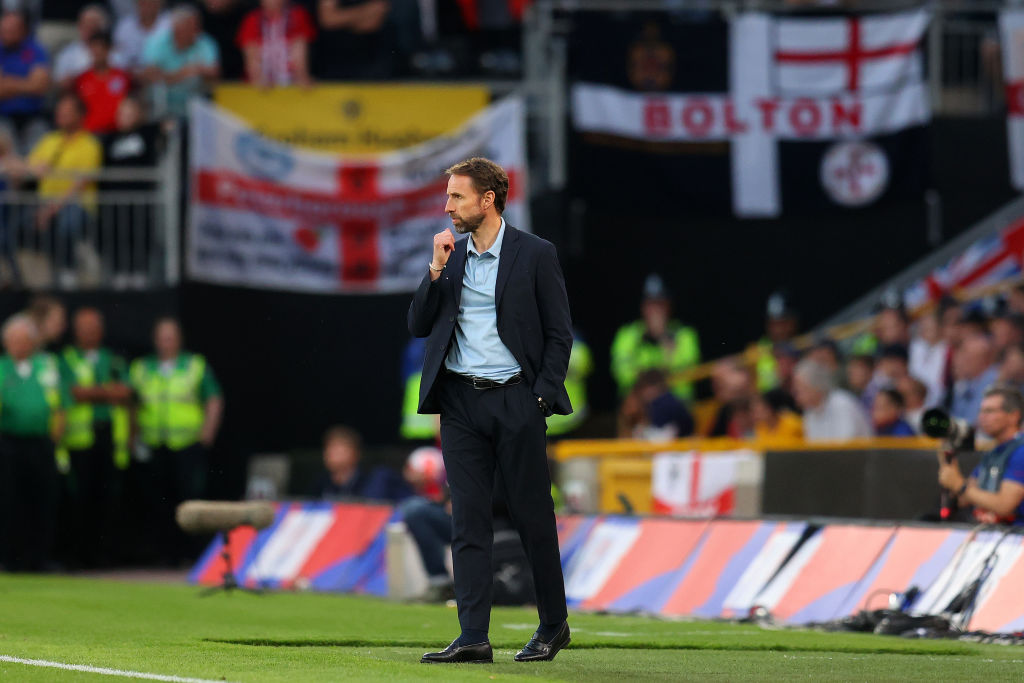Tinkering did for England in the Nations League but no need for a culture war over Southgate

It is as well that Gareth Southgate has always seemed acutely aware of the thin ice on which England managers exist, given the reaction that greeted Tuesday’s defeat to Hungary.
The shock 4-0 loss, England’s heaviest in a home fixture for more 90 years, prompted boos from the Molineux crowd and, laughably, even the odd chorus of “you’re getting sacked in the morning” aimed at Southgate.
Less than a year on from the team reaching the final of Euro 2020 and just months out from a World Cup, that represents risible treatment for the most successful Three Lions manager aside from World Cup winner Sir Alf Ramsey.
Nonetheless, it is right to scrutinise why England have played so poorly this month – without turning it into a culture war over Southgate.
In their four Nations League fixtures since the end of the club season, they have taken just two points, failed to score in open play and lost twice to Hungary, a side ranked below Iran, Costa Rica and Scotland.
This week’s humbling by the Hungarians was particularly concerning given the way England unravelled late in the game, albeit not worthy of the invective poured on Southgate.
The England manager was on a hiding to nothing with this batch of Nations League games, an unwelcome addendum to a draining season that would not be happening now had the World Cup not been moved to winter.
Take them seriously in an attempt to win the competition, knowing he will probably get little credit even if they do, or use the matches to experiment with new players or systems ahead of the World Cup and risk the wrath of England fans with very short memories.
Southgate made clear before the string of fixtures that he would opt for the latter, in part because of an evident fatigue factor, and the outcome was performances that were well below par both collectively and individually.
England lacked cutting edge. Their tactic of using Kane to feed runners in behind faltered, with Raheem Sterling used sparingly, Phil Foden mostly injured and Bukayo Saka, Jarrod Bowen and Mason Mount lacking their usual threat.
Another favoured ploy, the use of wing-backs, was also less effective. England missed a dedicated left-back in Ben Chilwell or Luke Shaw, while neither Trent Alexander-Arnold and Reece James advanced their claims at right-back.
Rotation in midfield left England looking loose and disjointed. For all of his talent, it is unclear what Jude Bellingham’s best role is in this team. Conor Gallagher was keen but didn’t affect the game, and Foden and Jordan Henderson were missed.
In goal, Aaron Ramsdale gained valuable experience but is not in the same form of the first half of last season. In his last 10 Arsenal games he conceded every other effort on target, a rate he continued against Italy and Hungary.
The four matches weren’t an unmitigated failure: in the one game in which England fielded their strongest XI, against Germany, they drew, while they also took a point off Italy. They are not the only big team to flop, either; world champions France, too, have just two points.
Southgate, meanwhile, continues to attract disproportionate criticism. Those quick to sharpen their knives seem oblivious to his predecessors’ mostly woeful tournament records, even when afforded so-called golden generations.
If there are lessons to be learned from the past fortnight, perhaps they are that England can only take so much tinkering and that the senior stars such as Sterling who have formed the backbone of success under Southgate are less replaceable than thought.
Beyond that, there is a danger of reading too much into a string of games in a competition not considered a priority that England’s players, many exhausted from a 10-month campaign, clearly struggled to get up for.
